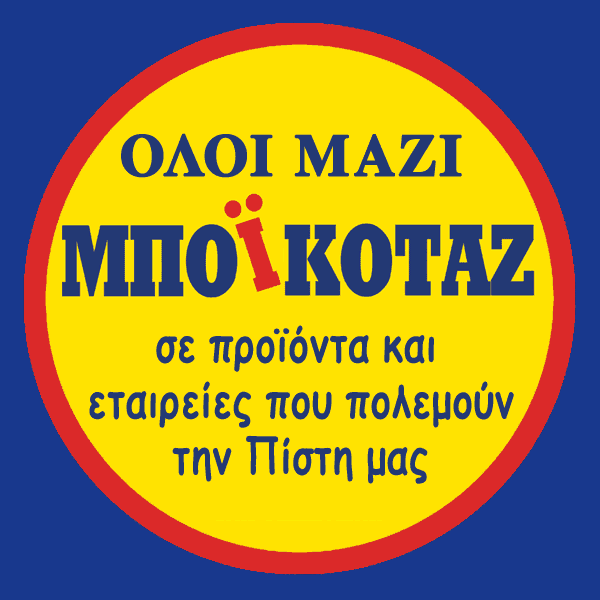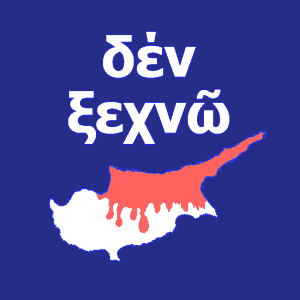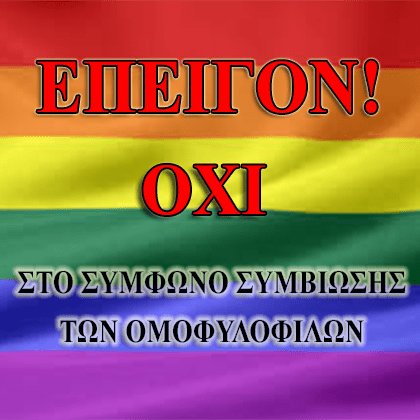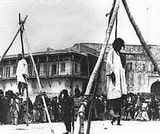6 Οκτ 2009
Το μόνο που φοβάται το φασιστικό καθεστώς, είναι η ΑΛΗΘΕΙΑ.
Πλησιάζει ο καιρός...
CASE OF FOKAS v. TURKEY
(Application no. 31206/02)
JUDGMENT
(merits)
STRASBOURG
29 September 2009
This judgment will become final in the circumstances set out in Article 44 § 2 of the Convention. It may be subject to editorial revision.
In the case of Fokas v. Turkey,
The European Court of Human Rights (Third Section), sitting as a Chamber composed of:
Josep Casadevall, President,
Boštjan M. Zupančič,
Alvina Gyulumyan,
Ineta Ziemele,
Luis López Guerra,
Işıl Karakaş,
Ann Power, judges,
and Stanley Naismith, Deputy Section Registrar,
Having deliberated in private on 8 September 2009,
Delivers the following judgment, which was adopted on that date:
PROCEDURE
1. The case originated in an application (no. 31206/02) against the Republic of Turkey lodged with the Court under Article 34 of the Convention for the Protection of Human Rights and Fundamental Freedoms (“the Convention”) by two Greek nationals, Mr Ioannis Fokas and Mr Evangelos Fokas (“the applicants”), on 6 March 2002.
2. The applicants were represented by Mr D. Geldis, Mr A. Demetriades and Mr O. Hemşinlioğlu, lawyers practising in Katerini (Greece), Nicosia (Cyprus), and Istanbul (Turkey) respectively. The Turkish Government (“the respondent Government”) were represented by their Agent.
3. Relying on Articles 6, 8, 13 and 14 of the Convention and Article 1 of Protocol No. 1 the applicants complained that they had been deprived of their right to peaceful enjoyment of their possessions as a result of the national authorities’ refusal to recognise them as the legal heirs in respect of the immovable property which had been owned by the late Polikseni Pistika, their sister. They further alleged that they had been discriminated against on the basis of their ethnic origins and religious convictions.
4. On 11 June 2007 the President of the Third Section decided to give notice of the application to the Turkish Government. It was also decided to examine the merits of the application at the same time as its admissibility (Article 29 § 3).
5. Third party comments were received from the Greek Government, who had exercised their right to intervene in the procedure (Article 36 § 1 of the Convention and Rule 44 § 1 (b) of the Rules of Court). The respondent Government replied to those comments (Rule 44 § 5).
THE FACTS
I. THE CIRCUMSTANCES OF THE CASE
6. The applicants were born in 1945 and 1948 respectively and live in Katerini, Greece.
7. Ms Polikseni Foka was a Greek national who was born in 1943. In 1954 she was adopted by Mr Apostolos Pistikas and his wife Mrs Elisavet Pistika, who were both Turkish nationals of Greek origin. The adoption was made in accordance with the decisions of both the Greek and Turkish courts.
8. Following the death of Mr Apostolos Pistikas on 24 November 1981, all his property was inherited by his wife Mrs Elisavet Pistika. Upon the death of the latter on 6 March 1987, Polikseni Pistika (Foka) was the sole heir to the property. The relevant property consisted of both immovable and movable property. In particular, it comprised three buildings in Istanbul and income from rent, deposits and valuable documents/deeds.
9. On 3 July 1987 the Istanbul 3rd Civil Court (Asliye Hukuk) decided that the total of the above-mentioned immovable and movable property of Mrs Elisavet Pistika would be transferred by way of inheritance to Ms Polikseni Pistika (Foka).
10. On 15 July 1991 Ms Polikseni Pistika (Foka) was transported by the police to a hospital for treatment. She was admitted to the psychiatric department of the Balıklı Rum (Greek) hospital in Zeytinburnu, Istanbul, because she was not capable of taking care of her personal affairs. The authorities thus appointed a guardian for Ms Polikseni Pistika despite the first applicant’s efforts to appoint a guardian of his choice.
11. On 31 July 1996 the Turkish authorities filed an application for the annulment of the decision by which Ms Polikseni Pistika (Foka) had inherited the above-mentioned property. This was due to, inter alia, Legislative Decree no. 1062 and Decisions no. 6/3706 of 25 September 1964 and no. 6/3801 of 2 November 1964, according to which a natural person holding Greek nationality has no right to inherit in Turkey and, also, because the Greek Government applied similar provisions to persons of Turkish origin living in Greece.
12. On 27 November 1997 the Istanbul 7th Civil Court annulled the decision on inheritance (decision no. 1197/1261), although Ms Polikseni Pistika had already paid the inheritance tax which was due to the State. The Court of Cassation upheld this judgment by a decision of 2 February 1998. On 12 October 1998 the latter court also dismissed the request for rectification of its decision. As a result, the immovable property was transferred to the Treasury and Ms Polikseni Pistika (Foka) was deprived of all her income and accounts and thus remained without resources in the psychiatric department of the Balıklı Rum hospital.
13. In the meantime, Ms Polikseni Pistika’s legal guardian had commenced two legal challenges against the above decision. In this connection on 10 March 1999 the legal guardian filed an action in the 7th Chamber of the Istanbul Magistrate’s Court for the re-opening of the proceedings. His request was dismissed on 27 May 1999. The appeal proceedings against this decision came to an end as a result of the death of Ms Polikseni Pistika. A further action in the 4th Chamber of the Ankara Administrative Court was also terminated for the same reason. It is to be noted that the applicants did not sub’
\mit any document pertaining to the legal proceedings before the Ankara Administrative Court.
14. On 24 April 2000 Ms Polikseni Pistika died in Istanbul whilst she was under guardianship and confined in an institution due to psychiatric illness.
15. On 26 September 2000 the applicants, who are the sole heirs to the property of their sister, filed a petition with the Beyoğlu Magistrates’ Court for the issuance of a certificate of inheritance.
16. On 19 April 2001 the Beyoğlu Magistrates’ Court dismissed the applicants’ request to inherit their sister’s immovable property, but accepted it in respect of the movable property. In its decision, the court took into account the Ministry of Justice’s opinion concerning the practice of the Greek authorities in respect of the inheritance rights of the Turkish minority in Greece, which stated:
“...The Turkish nationals who are not of Greek origin are entitled to acquire property only by permission and within the limits of the law which regulates 55% of the total Greek territory. In practice, the condition of “permission” functions as a mechanism aimed at preventing the Turkish nationals to acquire property. In other areas, which are not covered by the said law, the Turkish nationals of non-Greek origin and the Greek nationals of Turkish origin are prevented by various means from acquiring immovable property either by purchasing or inheriting. These people are compelled to sell their immovable property. Yet the Turkish nationals of Greek origin are able to acquire immovable property in the areas covered by that law on the condition that they obtain the requisite permission. While there is information on the subject, it is not based on concrete evidence and therefore its assessment should be made by the courts...”
In view of this opinion, the court held that the applicants were not entitled to the right of inheritance for immovable property in Turkey on account of their nationality and in view of the principle of reciprocity between Greece and Turkey. The applicants appealed against this judgment.
17. On 14 September 2001 the Court of Cassation rejected the appeal. By a decision of 20 November 2001 it also dismissed the applicants’ request for rectification of its decision.
II. RELEVANT DOMESTIC LAW
18. Relevant domestic law and practice can be found in the judgments of Apostolidi and Others v. Turkey (no. 45628/99, §§ 49-56, 27 March 2007), and Nacaryan and Deryan v. Turkey (nos. 19558/02 and 27904/02, §§ 17 24, 8 January 2008).
THE LAW
I. ALLEGED VIOLATION OF ARTICLE 1 OF PROTOCOL No. 1 TO THE CONVENTION
19. The applicants complained that they had been deprived of their right to peaceful enjoyment of their possessions as a result of the national authorities’ refusal to recognise them as the legal heirs in respect of the immovable property which had been owned by the late Polikseni Pistika. They alleged a violation of Article 1 of Protocol No. 1 to the Convention, which reads as follows:
“Every natural or legal person is entitled to the peaceful enjoyment of his possessions. No one shall be deprived of his possessions except in the public interest and subject to the conditions provided for by law and by the general principles of international law.
The preceding provisions shall not, however, in any way impair the right of a State to enforce such laws as it deems necessary to control the use of property in accordance with the general interest or to secure the payment of taxes or other contributions or penalties.”
A. Admissibility
20. The respondent Government invited the Court to dismiss the application for failure to observe the six-month rule. They noted that the Court of Cassation’s decision of 12 October 1998 was the final domestic decision for the purposes of the running of six months, since on that date the late Polikseni Pistika’s title to the immovable property had already been revoked.
21. The applicants disputed the respondent Government’s argument. They claimed that the final domestic decision in respect of their claims had been rendered on 20 November 2001 by the Court of Cassation, which had rejected their request for an inheritance certificate in respect of the immovable property owned by the late Polikseni Pistika. They further pointed out that, following the Court of Cassation’s decision confirming the lower court’s judgment to revoke Ms Pistika’s status as the heir in respect of the immovable property, her legal guardian had pursued the proceedings by challenging the impugned decision. Therefore, the respondent Government’s contention concerning the date on which the six months should start running could not be accepted.
22. The Court notes that the applicants’ complaint mainly concerns the national authorities’ refusal to issue them an inheritance certificate in respect of the immovable property owned by Polikseni Pistika. Given that the final domestic decision on the dispute was given on 20 November 2001 by the Court of Cassation, which re-examined the question of ownership of the immovable property in the proceedings (see paragraph 16 above), and that the application was submitted to the Court on 6 March 2002, it is clear that the six-month time-limit was observed by the applicants in compliance with Article 35 § 1 of the Convention.
23. The Court notes that this complaint is not manifestly ill-founded within the meaning of Article 35 § 3 of the Convention. It further notes that it is not inadmissible on any other grounds. It must therefore be declared admissible.
B. Merits
1. Parties’ submissions
a. The respondent Government
24. The Government submitted that the applicants did not have possessions within the meaning of Article 1 of Protocol No. 1. They maintained that this provision applied to a person’s existing possessions and that it did not guarantee the right to acquire possessions. In the circumstances of the present case, given that the deceased did not own the immovable property in question, it could not be transferred to the inheritors, namely, to the applicants.
25. The Government also asserted that under Article 35 of Law no. 2644 on Land Registry non-Turkish persons were entitled to acquire property by way of inheritance under two conditions. Firstly, there should be reciprocity between their country and Turkey. Secondly, foreign nationals should act within the restrictive legal provisions. The principle of reciprocity, which could be de jure or de facto, required that foreign nationals could acquire immovable property in Turkey provided that the same right was accorded in their country to Turkish nationals under the same conditions. Furthermore, Article 1 of Law no. 1062 on Reciprocity provided that the property of foreign nationals could be confiscated by a decree of the Council of Ministers if Turkish nationals were treated in the same way in their country of origin. At the material time, the Greek legislation and practice did not allow Turkish nationals to acquire immovable property in Greece. Thus, the restriction applied to the Greek nationals on their right of inheritance of immovable property was in conformity with the principle of reciprocity between Turkey and Greece.
26. The Government thus concluded that the applicants had neither had existing possessions nor a legitimate expectation of acquiring the immovable property in question by way of inheritance since the above-mentioned conditions had not been met.
b. The applicants
27. The applicants contended that, contrary to the respondent Government’s assertions, the deceased, Ms Polikseni Pistika, had owned the immovable property in question since the Turkish courts had issued her a certificate of inheritance and all three buildings had been registered in her name at the local land registry office upon payment of the requisite tax. Polikseni had only been deprived of her property following unlawful confiscation by the Turkish authorities on the basis of a secret Government decree of 1964 which had already been annulled in 1988. Thus, the confiscation of the property of Polikseni had been illegal, arbitrary and abusive even under the domestic law of Turkey. Furthermore, the annulment of the certificate of inheritance had not met the requirements of precision and foreseeability implied by the concept of law within the meaning of the Convention. Had it not been for this unlawful act and the respondent Government’s continuous reliance on reciprocity, the applicants would have inherited the property in question as the sole heirs of Polikseni.
28. The applicants claimed that the question of reciprocity raised by the Government had already been addressed by the Court in its judgments in the cases of Apostolidi and Others and Nacaryan and Deryan (both cited above) where it found a breach of Article 1 of Protocol No. 1 when a validly granted certificate of inheritance had later been revoked on the basis of alleged lack of “reciprocity”.
29. In view of the above, the applicants claimed that there had been a violation of their right protected by Article 1 of Protocol No. 1.
c. The Greek Government
30. The Greek Government contended that the applicants had possessions within the meaning of Article 1 of Protocol No. 1 to the Convention. In their opinion, the Turkish courts’ reliance on reciprocity and their ill-founded and unproven finding that this principle was not applied in Greece constituted a clear interference with the applicants’ right to peaceful enjoyment of their possessions. Furthermore, they claimed that the principle of reciprocity did not apply in matters of protection of human rights and that, in any event, in Greek law there was no provision prohibiting Turkish citizens from inheriting immovable property in any place or region in Greece.
31. The Greek Government maintained that the Turkish courts had recognised the relation between the applicants and the deceased and their undisputed capacity as her heirs. Thus the applicants had at least a legitimate expectation of acquiring a hereditary right not only to the movable but also the immovable assets of the estate of their predecessor in title.
32. The Greek Government noted also that the national courts’ interpretation and application of the domestic law, particularly Article 35 of the Law on Land Registry, was arbitrary and had lacked legal security and foreseeability. They thus concluded that the impugned interference with the applicants’ right to peaceful enjoyment of their possessions had not been prescribed by law, had violated the principle of the rule of law and had upset the fair balance required by the principle of proportionality.
2. The Court’s assessment
a. Applicable principles
33. The Court reiterates that an applicant can allege a violation of Article 1 of Protocol No. 1 only in so far as the impugned decisions related to his “possessions” within the meaning of this provision. Furthermore, the concept of “possessions” in the first part of Article 1 of Protocol No. 1 has an autonomous meaning which is independent from the formal classification in domestic law (see Beyeler v. Italy [GC], no. 33202/96, § 100, ECHR 2000-I). “Possessions” can be either “existing possessions” or assets, including claims, in respect of which the applicant can argue that he or she has at least a “legitimate expectation” of obtaining effective enjoyment of a property right. By way of contrast, the hope of recognition of a property right which it has been impossible to exercise effectively cannot be considered a “possession” within the meaning of Article 1 of Protocol No. 1, nor can a conditional claim which lapses as a result of the non-fulfilment of the condition (see Prince Hans-Adam II of Liechtenstein v. Germany [GC], no. 42527/98, §§ 82-83, 2001 VIII, and Gratzinger and Gratzingerova v. the Czech Republic (dec.), no. 39794/98, ECHR 2002 VII).
b. Whether there were “possessions”
34. In the instant case, the Court notes that the national courts did not recognise the applicants’ right to inherit the immovable property in question. Nor did the applicants acquire inheritance rights automatically after the death of Polikseni Pistika, since the national courts considered that at the relevant time non-Turkish nationals’ right to acquire immovable property by way of inheritance was subject to the condition of “reciprocity” in accordance with Article 35 of the Law on Land Registry and that this condition had not been met in the case of Greek nationals. Accordingly, the immovable property in question was never transferred to the applicants because of the domestic courts’ perception of the national law then in force. As a result, the applicants did not have existing possessions within the meaning of Article 1 of Protocol No. 1 (see Nacaryan and Deryan, cited above, § 45).
35. In view of the above finding, the Court will next ascertain whether there was an “asset” by virtue of which the applicants could claim to have a legitimate expectation of being recognised as heirs in respect of the immovable property.
36. In this connection, the Court reiterates that a claim may be regarded as an “asset” only where it has a sufficient basis in national law (see Kopecký v. Slovakia [GC], no. 44912/98, § 52, ECHR 2004 IX). Accordingly, the essential question which needs to be determined is whether there was a sufficient legal basis in domestic law, as interpreted and applied by the domestic courts, in order to qualify the applicants’ claim as an asset within the meaning of Article 1 of Protocol No. 1. To that end, it must be ascertained whether the applicants have fulfilled the condition of “reciprocity” laid down in Article 35 of the Law on Land Registry.
c. The Court’s findings in the case of Nacaryan and Deryan
37. The Court recalls that in the above-mentioned Nacaryan and Deryan case, which also concerned the national courts’ refusal to recognise the applicants’ status as heirs in respect of immovable property, it examined the question whether the manner in which the reciprocity principle was applied in the applicants’ case had complied with the Convention (see Nacaryan and Deryan, cited above, §§ 47-57).
38. In this context, the Court examined how the application of the principle of “reciprocity” in Turkish law had affected the applicants’ rights under the Convention. It found that, unlike the national courts’ conclusions based on the report of the Ministry of Justice, Turkish nationals could inherit immovable property in Greece, including in regions where restrictions were imposed by the Law of 1990 concerning the purchase and sale of immovable property (see Nacaryan and Deryan, cited above, §§ 52 and 53).
39. Furthermore, having examined the relevant legislation then in force, the Court found that there was no legal obstacle preventing Greek nationals from acquiring immovable property in Turkey since the Council of Ministers had issued a decree on 3 February 1988 abolishing the decree dated 2 November 1964 which had prohibited the acquisition of immovable property by Greek nationals. Article 35 of the Law on Land Registry had also been modified with a view to allowing non-nationals to inherit immovable property in Turkey. The Court thus concluded that the applicants, whose lineage had been established with the deceased, could legitimately have believed that they had satisfied all the conditions for inheriting immovable property, as was the case in respect of the movable property. In those circumstances, the applicants could not have foreseen that the national courts would consider that the condition of “reciprocity” had not been met.
40. Thus, the Court held that the applicants had had a “legitimate expectation” of being recognised as heirs to the immovable property of the deceased and, consequently, their right to peaceful enjoyment of their “possessions” and that Article 1 of Protocol No. 1 applied in the circumstances. In the Court’s opinion, there had therefore been an interference with the applicants’ right to peaceful enjoyment of their possessions as a result of the national courts’ refusal to recognise their status as heirs in respect of the immovable property. This interference fell to be examined in light of the principle laid down in the first sentence of the first paragraph of Article 1 Protocol No. 1.
41. Finally, as regards the lawfulness of the interference, the Court concluded that the impugned interference had been incompatible with the principle of lawfulness and had therefore contravened Article 1 of Protocol No. 1 because the manner in which Article 35 of the Law on Land Registry had been interpreted and applied by the national courts was not foreseeable for the applicants (see Nacaryan and Deryan, cited above, §§ 58-60).
d. Whether the applicants had “legitimate expectation” of obtaining effective enjoyment of a property right
42. In the instant case, the Court sees no reason to depart from its findings in the above-mentioned Nacaryan and Deryan case. It notes that in dismissing the applicants’ claims to the immovable property in question, the national courts erred in their consideration that reciprocity was a primary condition to be met. They then concluded that the requisite condition had not been met between Greece and Turkey (see paragraphs 11, 12, 16 and 38 above). Furthermore, in annulling the inheritance certificate of Polikseni Pistika in respect of the immovable property, the domestic courts had wrongly relied on the legislative decree dated 2 November 1964, whereas that decree had already been abolished by the Council of Minister’s decree of 3 February 1988, which was well before the annulment of the inheritance certificate in 1996, and therefore was not applicable at the time of the impugned decision (see paragraphs 11, 12 and 38).
43. This being so, in the circumstances of the present case, the applicants could legitimately have believed that they had satisfied all conditions to inherit immovable property as well as the movable property of the deceased. They could not have foreseen that the national courts would consider that the condition of “reciprocity” had not been met. Accordingly, the applicants had a “legitimate expectation” of being recognised as heirs to the immovable property inherited by their sister Polikseni Pistika (see paragraph 42 above). Therefore the national courts’ refusal to recognise the applicants’ status as heirs in respect of the immovable property constituted an interference with the applicants’ right to peaceful enjoyment of their possessions.
44. The foregoing considerations are sufficient to enable the Court to conclude that the impugned interference was incompatible with the principle of lawfulness and therefore contravened Article 1 of Protocol No. 1 because the manner in which Article 35 of the Law on Land Registry had been interpreted and applied by the national courts was not foreseeable for the applicants (see Nacaryan and Deryan, cited above, §§ 58-60).
45. There has accordingly been a violation of Article 1 of Protocol No. 1 to the Convention.
II. OTHER ALLEGED VIOLATIONS OF THE CONVENTION
46. The applicants further complained of violations of Articles 6, 8, 13 and 14 of the Convention. In this connection, they alleged that they had been denied a fair trial as a result of the national courts’ decisions based on the opinion of the Ministry of Justice. The interference in question had also constituted a breach of their right to family life protected by Article 8 of the Convention. Furthermore, the applicants claimed to have been denied an effective remedy for their grievances in breach of Article 13. Finally, they alleged that the violations in question had occurred as a result of their Greek ethnic origin and their Christian Orthodox faith.
47. The Government contested these arguments.
48. The Court notes that these complaints are linked to the one examined above and must therefore likewise be declared admissible.
49. Having regard to the facts of the case, the parties’ submissions and its finding of a violation under Article 1 of Protocol No. 1, the Court considers that it has examined the main legal question raised in the present application. It therefore concludes that there is no need to make a separate ruling under this head (see, as an example of this practice, Mehmet and Suna Yiğit v. Turkey, no. 52658/99, § 43, 17 July 2007, and K.Ö. v. Turkey, no. 71795/01, § 50, 11 December 200
).
III. APPLICATION OF ARTICLE 41 OF THE CONVENTION
50. Article 41 of the Convention provides:
“If the Court finds that there has been a violation of the Convention or the Protocols thereto, and if the internal law of the High Contracting Party concerned allows only partial reparation to be made, the Court shall, if necessary, afford just satisfaction to the injured party.”
51. The applicants claimed 18,913,083 euros (EUR) in respect of pecuniary damage resulting from the loss of use of the three buildings in question. In addition to this amount and in case the respondent Government is unable or refuses to deliver vacant possession of the three buildings, they claimed EUR 5,459,026 for the value of the property in question.
52. Furthermore, the applicants each claimed EUR 100,000 for non pecuniary damage. They noted in this connection that they had not only lost their sister but had been prevented from looking after her. The respondent Government’s insensitivity and unlawfulness in handling this matter had also caused them stress and distress.
53. As regards the costs and expenses, the applicants contended that the amount of EUR 44,244.43 would be an appropriate amount to be awarded by the Court. They asserted that the seriousness of the case had required the services of a Cypriot lawyer as well as Greek and Turkish lawyers.
54. The Government submitted that the amounts claimed by the applicants were speculative and unsubstantiated.
55. In the circumstances of the case, the Court considers that the question of the application of Article 41 is not ready for decision and must be reserved, due regard being had to the possibility of an agreement between the respondent State and the applicants.
FOR THESE REASONS, THE COURT UNANIMOUSLY
1. Declares the application admissible;
2. Holds that there has been a violation of Article 1 of Protocol No. 1 to the Convention;
3. Holds that there is no need to examine the complaints under Articles 6, 8, 13 and 14 of the Convention;
4. Holds that the question of the application of Article 41 of the Convention is not ready for decision;
accordingly,
(a) reserves the said question;
(b) invites the Government and the applicants to submit, within three months from the date on which the judgment becomes final according to Article 44 § 2 of the Convention, their written observations on the matter and, in particular, to notify the Court of any agreement that they may reach;
(c) reserves the further procedure and delegates to the President of the Chamber the power to fix the same if need be.
Done in English, and notified in writing on 29 September 2009, pursuant to Rule 77 §§ 2 and 3 of the Rules of Court.
Stanley Naismith Josep Casadevall
Deputy Registrar President















